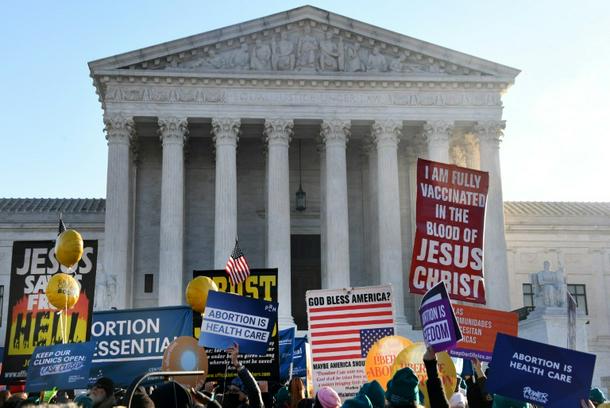
Demonstrators gathered outside the US Supreme Court as the justices prepared to hear a case that could roll back abortion rights
Washington (AFP) - Hundreds of demonstrators gathered outside the US Supreme Court on Wednesday as the nine justices heard arguments in a pivotal case that could roll back 50 years of abortion rights in the country.
“Abortion Is Murder,” read signs carried by anti-abortion protesters. “Abortion Is Health Care,” said placards displayed by supporters of abortion rights.
The Supreme Court, which was shifted dramatically to the right under former president Donald Trump, is examining a 2018 law in the southern state of Mississippi that prohibits most abortions after 15 weeks of pregnancy.
The nine-member court is expected to render a decision by next June, and supporters and opponents alike agree the ruling could be a historic moment regarding a woman’s right to terminate a pregnancy.
In the landmark 1973 decision Roe v. Wade, the court held that access to abortion is a woman’s constitutional right, striking down state laws that restricted the procedure.
In a 1992 ruling, Planned Parenthood v. Casey, the court guaranteed a woman’s right to a termination until the fetus is viable outside the womb, which is typically 22 to 24 weeks.
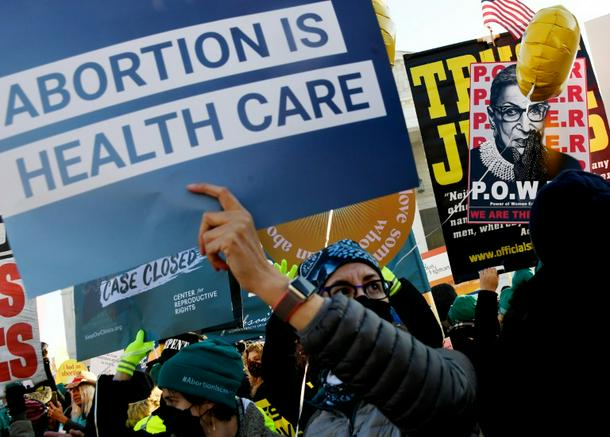
Demonstrators gathered outside the US Supreme Court as the justices prepared to hear a case that could roll back abortion rights
The rulings did not put an end, however, to conservative and religious opposition to the procedure, and anti-abortion activists believe their moment may have finally arrived after years of legal battles.
“We recognize the magnitude of what we are asking,” Mississippi Attorney General Lynn Fitch wrote in The Washington Post.
Fitch argued that in Roe v. Wade, the court took the difficult task of abortion policymaking “out of the hands of the people” and into those of unelected judges.
“It is time to correct that mistake,” she said.
The 2018 Mississippi law was blocked as unconstitutional by lower courts before ending up in the Supreme Court.
Just by agreeing to hear the case, the court indicated that it was prepared to revisit its previous rulings, at least when it comes to the question of fetus “viability.”
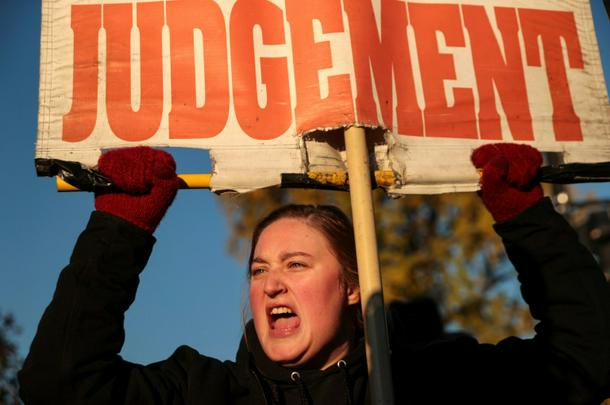
A demonstrator holds a sign outside the US Supreme Court as the justices prepare to hear a case that could roll back abortion rights
Mississippi, a conservative Bible Belt state, is asking the top court to go even further and strike down Roe v. Wade.
“Nothing in constitutional text, structure, history, or tradition supports a right to abortion,” the state argued in a brief to the court.
- ‘Ash heap of history’ -
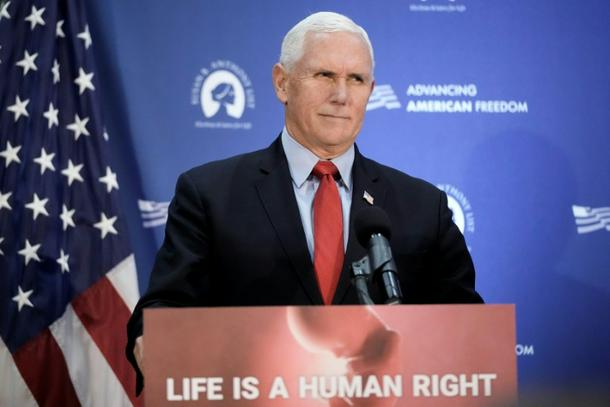
Mike Pence said he hopes the 1973 ruling that guarantees a woman's right to an abortion ends up on "the ash heap of history where it belongs"
Mississippi has received the backing of 18 other Republican-led states, hundreds of lawmakers, the Catholic Church and anti-abortion groups, some of which have spent millions of dollars on publicity campaigns.
On Tuesday, anti-abortion activists were energized by the support of former vice president Mike Pence, as the Republican known for his firm Christian faith expressed confidence Roe v. Wade would be struck down.
“We may well be on the verge of an era when the Supreme Court sends Roe v. Wade to the ash heap of history where it belongs,” Pence said.
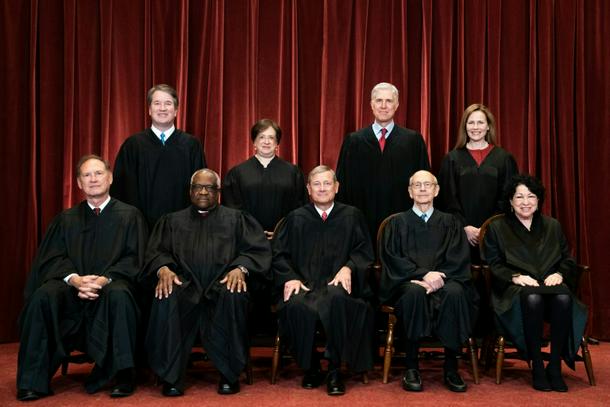
The 2018 Mississippi law was blocked as unconstitutional by lower courts before ending up in the Supreme Court
The anti-abortion camp has been galvanized by Trump’s promotion to the court of three justices, giving conservatives a 6-3 majority.
Two justices nominated by Trump replaced defenders of abortion rights – Anthony Kennedy, whose seat went to Brett Kavanaugh, and feminist icon Ruth Bader Ginsburg, whose successor, Amy Coney Barrett, is a devout Catholic.
The impact of the new justices on the panel was apparent on September 1 when the court declined an emergency request to block a Texas law that bans abortion after just six weeks of pregnancy.
Julie Rikelman, a lawyer for the Center for Reproductive Rights who will argue the latest case before the court, said that if the justices uphold the Mississippi law “it would be possible for states to ban abortion at virtually any point in pregnancy.”
“If the court upholds the ban, which everyone agrees is two months before viability, it is overruling Roe and Casey even if the decision doesn’t use those words,” Rikelman said.